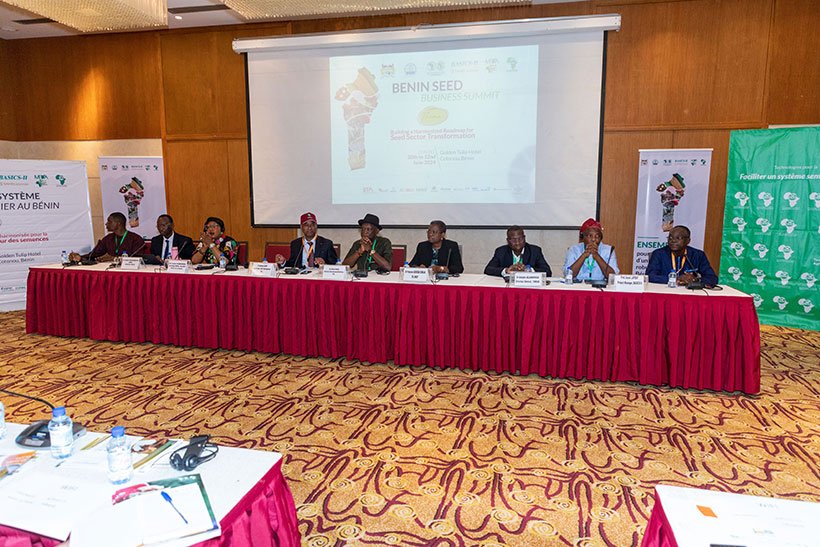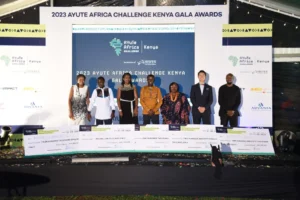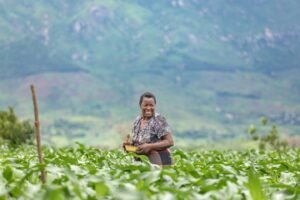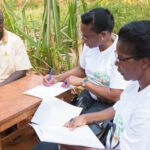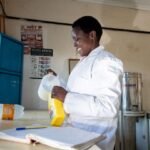By IITA, June 27, 2024, Stakeholders from the Republic of Benin and across Africa are organizing a summit to draw a seed roadmap for the West African countries.
The consortium includes the Government of Benin, the African Development Bank (AfDB) funded Technologies for African Agricultural Transformation (TAAT), the IITA Building an Economically Sustainable Integrated Cassava Seed System, Phase 2 (BASICS-II) project, the Sasakawa Africa Association (SAA) in Nigeria, the Sahel Consulting and Mennonite Economic Development Associates (MEDA).
The three-day Seed Business Summit, with the theme “Building a harmonized roadmap for seed sector transformation,” is being organized in collaboration with the Beninese Ministry of Agriculture, Livestock and Fisheries (MAEP), the Beninese National Institute for Agricultural Research (INRAB), and other stakeholders.
The summit will be held from 20 to 22 June in Cotonou, the Beninese capital. The forum aims to catalyze an agricultural revolution in Benin by establishing an economically sustainable seed system for priority crops like rice, cassava, maize, soybean, livestock, fish, sorghum, and millet.
According to the Head of TAAT Clearinghouse, Solomon Gizaw, “This summit is a direct response to the need to hold a more comprehensive audience consultation to identify major challenges, develop solutions, and advocate for more investments in Benin’s agriculture.”
“This seed summit will bring together policymakers, international financial institutions and policymakers, scientists, the private sector, and farmer organizations to a roundtable discussion to broker investments for Beninese agricultural transformation with quality inputs, particularly seed as a primary entry point,” Gizaw added.
The BASICS-II Project Manager, Lateef Sanni, explained, “The seed summit will produce outcomes that will form the basis of future investment in Benin’s seed system. It will produce recommendations to help forge a roadmap to feed into the country’s agricultural policies and plans.”
“The summit will address factors limiting growth in Benin’s agricultural sector, including the underdeveloped seed sector characterized by poor quality seeds, a weak seed regulatory framework, a struggling research system for variety maintenance, and a feeble private sector participation in the seed system,” said Godwin Atser, the Country Director of SAA-Nigeria.
“A solid seed system will surely change the country’s agricultural landscape. In this summit, SAA, BASICS-II, TAAT, and other partners will share the models currently strengthening the seed system in Nigeria, Tanzania, DR Congo, Sierra Leone, and Liberia,” Atser added.
The Beninese Minister of Agriculture Livestock and Fisheries, Hon. Gaston Cossi Dossouhoui, will chair the summit’s opening ceremony with the support of other dignitaries and development partners.
Alongside the conveners, several national stakeholders, including farmers, seed producers, and International Development Partners (IDPs), will also participate in the summit.
These partners include the African Development Bank (AfDB), the Bill and Melinda Gates Foundation, the Food and Agriculture Organization (FAO), the World Bank, the European Union, the World Food Programme (WFP), the United States Agency for International Development (USAID), GIZ, and JICA.
AfricaRice, the African Agricultural Technology Foundation (AATF), the International Crops Research Institute for Semi-Arid Tropics (ICRISAT), the World Vegetable Center (WorldVeg), the International Livestock Research Institute (ILRI), and the WorldFish Center are other partners for this summit.
This article was originally published on the IITA website.

